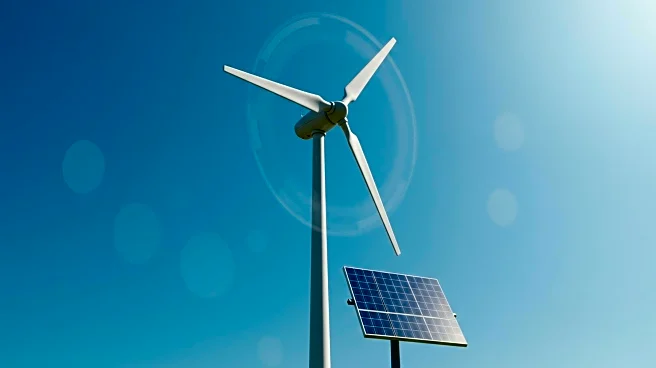What's Happening?
The Trump administration is set to implement stricter rules for federal tax subsidies related to solar and wind energy projects. This move, expected by August 18, follows an executive order by President Trump directing the Treasury Department to revise the criteria for clean energy tax credits. The changes will affect the definition of 'under construction' for projects, potentially requiring higher upfront costs or more stringent physical progress requirements. These adjustments are part of the One Big Beautiful Bill Act, which aims to phase out subsidies earlier than planned, impacting the renewable energy sector's growth.
Why It's Important?
The tightening of subsidy rules for solar and wind energy projects could significantly impact the renewable energy industry in the United States. By making it harder to qualify for tax credits, the administration's actions may slow down the development of new projects, affecting investment decisions and long-term planning. This could lead to a reduction in planned solar capacity, with potential losses of up to 60 gigawatts by 2030, enough to power millions of homes. The changes reflect broader policy shifts under the Trump administration, emphasizing traditional energy sources over renewables, and could influence the U.S.'s ability to meet climate goals.
What's Next?
As the Treasury Department finalizes the new rules, renewable energy developers are likely to adjust their strategies to comply with the updated requirements. Some companies may accelerate project timelines to secure subsidies before the changes take effect, while others might reassess their investment plans. The industry will closely monitor the Treasury's decisions, which could lead to increased lobbying efforts and legal challenges from affected stakeholders. The outcome of these regulatory changes will shape the future landscape of renewable energy development in the U.S., influencing both domestic and international energy policies.










